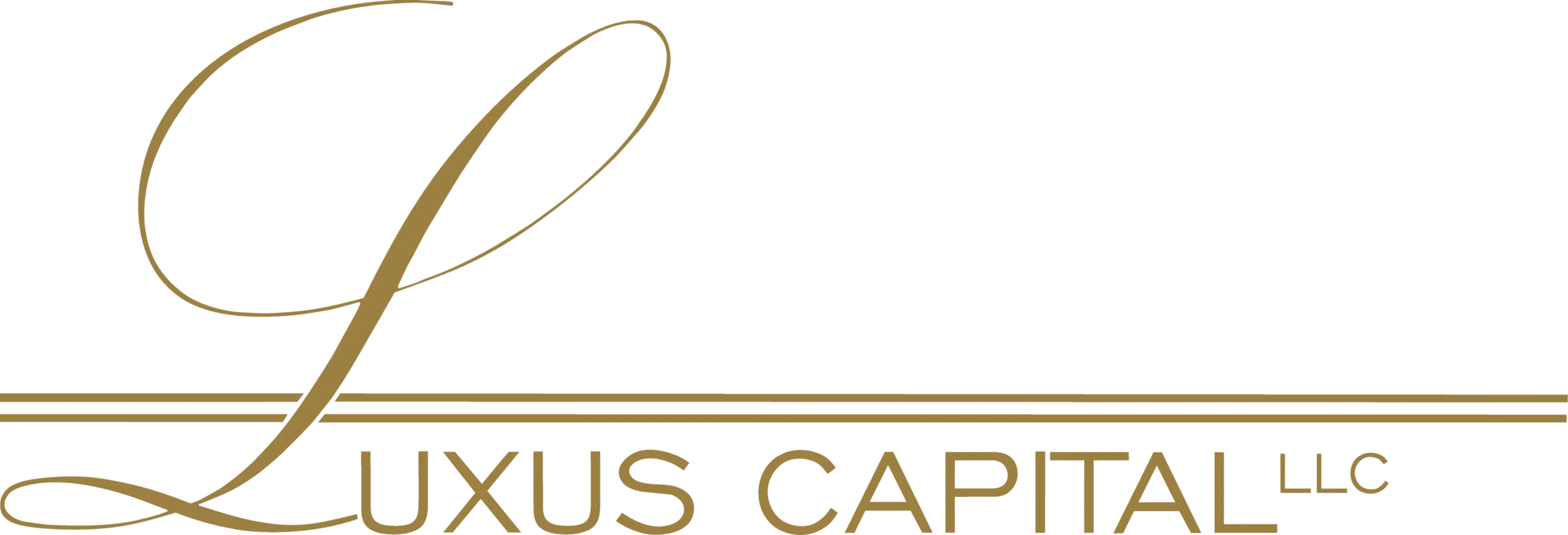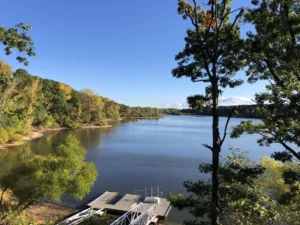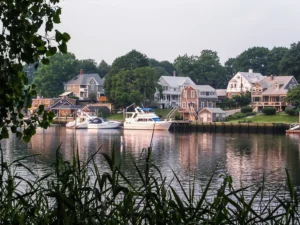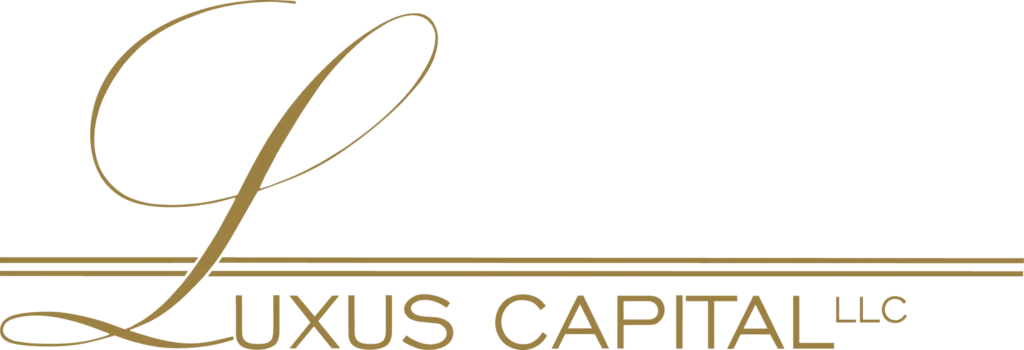Key Takeaways:
- Selling a gun in Raleigh isn’t hard, but it’s not something to wing, either: You don’t need to be a legal expert to sell your firearm, but skipping the basics—like checking for a permit or forgetting a bill of sale—can land you in a mess. Whether you’re selling privately or through a dealer, know the rules, write everything down, and don’t cut corners. It’s your responsibility, and honestly, it just makes the whole process smoother.
- Choose your selling method based on what matters most to you—speed, profit, or peace of mind: Want the most cash? A private sale might be the way to go. Prefer less hassle? A licensed dealer can handle the paperwork. Got time and want a wider reach? Online platforms like GunBroker can help. Each route has trade-offs. It’s less about “what’s best” and more about what fits your comfort zone and timeline.
- Transparency, safety, and solid record-keeping aren’t optional—they’re part of doing it right: Be clear about the condition of your gun, meet buyers in safe places, and always keep documentation. That paper trail isn’t just legal insurance—it’s peace of mind. A responsible sale protects you and helps preserve trust in Raleigh’s gun-owning community. And if something feels off? Walk away. The right buyer is out there.
A Practical Guide Without the Headache
Selling a firearm in Raleigh might sound complicated. Legal hoops, safety concerns, and the simple question of “Where do I even start?”—yeah, it can feel overwhelming. But it doesn’t have to be.
This guide breaks it all down into simple, manageable steps. Whether you’re an experienced gun owner thinning out your collection or just someone looking to sell a pistol you inherited from Uncle Joe, we’ll cover everything you need to know.
You’ll learn how North Carolina laws work, how to get your gun ready to sell, where to find trustworthy buyers, and what paperwork keeps you covered.
So, grab a coffee—or don’t—and let’s talk about how to sell your gun in Raleigh without losing your mind in the process.
First Things First: Know the Law
Let’s not sugarcoat it—firearms laws in North Carolina can be a little tricky, especially if you’ve never sold a gun before. That said, they’re not impossible to follow once you know what to look for.
Here’s the lowdown:
- Private sales are legal. You don’t need to run a background check as an individual seller. But—and this is important—the buyer must either have a valid purchase permit (for handguns) or a concealed carry license (CCL). No exceptions.
- Handgun buyers must be at least 21.
- Rifle and shotgun buyers only need to be 18.
Even though private sales don’t require background checks, it’s still your responsibility to make sure the person buying your gun is legally allowed to own one. Ignoring that could land you in serious trouble.
Quick Tip
Make a photocopy of the buyer’s CCL or purchase permit and keep a signed bill of sale for your records. It’s not required by law, but it’s a smart move if questions ever come up later.
Staying legal isn’t just about covering yourself—it’s about making sure firearms stay in the right hands. North Carolina gun laws change from time to time, too, so it’s worth checking in with local authorities or a trusted FFL before making a sale.
Getting Your Gun Ready to Sell
Think of this step like prepping a car for sale. You wouldn’t sell your ride without cleaning it and making sure it starts, right? The same goes for firearms.
Start by cleaning your gun thoroughly. If it’s been sitting in a safe for years, a little oil and elbow grease can go a long way. Function-check everything: safety, slide, cylinder, sights, trigger—make sure it’s in working order.
Also helpful:
- Gather paperwork – Owner’s manuals, receipts, repair records—anything that tells the gun’s story builds trust with buyers.
- Snap some good photos – Natural light works best. Take shots from different angles, and don’t forget serial numbers (blur them in online posts for safety).
- Know your market – Look up recent sales for the same make and model. That customized 1911 you love? It might not fetch as much as a factory-original in perfect condition.
If your gun has unique features—aftermarket sights, Cerakote finish, match-grade barrel—mention them. Just be honest. Overselling only backfires (pun intended).
Ways to Sell in Raleigh: What Are Your Options?
Raleigh’s not a bad place to sell a firearm, but choosing how to do it can make or break your experience. Each method has its pros, cons, and legal quirks. Let’s walk through them.
1. Private Sale
You meet someone, agree on a price, and hand off the gun—sounds simple, right? And it can be, if you check all the legal boxes.
- Always verify the buyer’s permit or CCL
- Use a bill of sale
- Meet in a safe, public place—preferably at a gun store or shooting range
It’s the most profitable route (no middlemen), but it also puts the most responsibility on you to get everything right.
2. Through a Dealer (FFL)
Don’t want to worry about background checks or verifying ID? Let a federally licensed dealer handle it. They’ll usually take your firearm in on consignment or offer to buy it outright.
Expect to pay a fee or give up a cut of the sale price—but you’re paying for peace of mind. And hey, they know how to price and present a gun to make it move.
3. Consignment at a Gun Shop
This one’s kind of a hybrid. You leave your gun at the shop, and they sell it for you. They take a percentage when it’s done. The upside? You get expert help with marketing your firearm. The downside? You might be waiting a while for it to sell.
Just make sure the shop spells out its policies on pricing, commissions, and timelines. No one likes surprises when money’s involved.
4. Online Marketplaces & Auctions
Sites like GunBroker can put your listing in front of a national audience. More eyes mean more potential buyers, which often means a higher selling price.
But keep in mind: if the buyer lives out of state, you must ship the firearm to a licensed FFL on their end. No mailing guns to random strangers. You’ll also need to check the rules for the website you’re using, because each one’s a little different.
Selling Privately: More Control, More Responsibility
If you’re thinking of going the private route, just know this—it’s perfectly legal in North Carolina, but that doesn’t mean it’s casual.
You’ve still got responsibilities.
First, confirm the buyer’s age and that they’ve got either a valid purchase permit (for handguns) or a concealed carry license. No paperwork? No sale. Don’t be tempted to skip this part—it’s the difference between a clean transaction and a legal nightmare.
Once that’s confirmed, be upfront about the firearm’s condition. If there’s cosmetic wear, say so. If it’s been modified, mention it. Trust goes a long way, especially in a sale involving firearms.
Here’s a good habit:
Create a simple bill of sale with both parties’ names, the firearm’s make, model, and serial number, date of transfer, and a note that the buyer has shown the required permit. Both of you should sign and keep a copy. It’s like a handshake with paperwork—basic protection in case things ever go sideways.
And one more thing: Always meet in a safe, public space. Parking lots of gun shops, shooting ranges, or even a sheriff’s department parking lot are solid choices. Bring a friend if you want. There’s no downside to staying cautious.
Selling Through a Dealer: Simple, Legal, Less Stress
For folks who’d rather not deal with verifying permits, haggling, or legal fine print, licensed gun dealers are a solid option.
They’ll take care of all the compliance stuff—background checks, buyer verification, federal forms—so you don’t have to sweat the details. That’s their job.
The tradeoff? You’ll usually get a little less money. Dealers either buy the firearm from you at a reduced rate (so they can resell it) or take a cut if they sell it on your behalf. It’s not highway robbery—it’s just how business works.
Still, there are perks:
- Faster turnaround
- No personal liability if the buyer misuses the gun
- Exposure to serious buyers who walk into the store with cash
If you’re going this route, shop around. Call a few gun shops in Raleigh, compare their offers or consignment terms, and read some online reviews. A well-reviewed dealer who knows the market is worth their fee.
Consignment Sales: Let the Shop Do the Work
If you’re not in a rush and want help selling, consignment is a sweet middle ground. Here’s how it works: You hand your firearm over to a gun store. They list it, display it, sell it—and you collect the cash (minus a commission) when it sells.
You benefit from:
- Professional salespeople are pitching your firearm
- In-store foot traffic
- Legal compliance is handled by the shop
Just be clear on the terms. Ask:
- How long will they keep the gun on consignment?
- What’s their commission rate?
- Do you have any say in pricing?
- What happens if it doesn’t sell?
The big plus? You avoid strangers on the internet and don’t have to meet buyers in parking lots. The downside is waiting—it could take days, weeks, or months. But for many folks, the tradeoff is worth it.
Online Sales & Auctions: More Reach, More Rules
Selling a gun online can feel like opening a door to thousands of buyers instead of just a few. And that’s true, but it comes with extra responsibilities.
First, choose the right platform. GunBroker is the most popular auction site for firearms, and it has built-in tools to help you manage listings, communicate with buyers, and even calculate shipping.
But keep these essentials in mind:
- Always ship to an FFL, never directly to the buyer
- Know your buyer’s state laws—some states have restrictions that may block your sale
- Communicate clearly—answer questions fast, and don’t overpromise
Your listing should be honest, detailed, and supported by good photos. Include the condition, caliber, modifications, and any accessories included. Set a fair starting bid or “Buy Now” price based on real market research, not wishful thinking.
Shipping a gun? Use UPS or FedEx, and always check their current policies. Most folks ship handguns overnight (per carrier rules), and all firearms must be shipped to the buyer’s chosen FFL dealer.
Yes, it’s more work. However, the exposure you get could help your firearm fetch a better price than selling locally.
FFL Holders: Your Transaction Lifeline
Let’s say you’re selling online or even face-to-face, but just want to make sure everything’s done right. That’s where a Federal Firearms License (FFL) holder comes in.
Think of them as the notaries of the gun world.
They handle:
- Background checks
- Form 4473s
- Transfer of ownership
- Shipping & receiving for out-of-state sales
And they keep everyone out of legal hot water.
Using an FFL might cost $25–$50 depending on the shop, but it’s money well spent if it means peace of mind. Especially if you’re selling to someone you don’t know or across state lines.
In Raleigh, there are plenty of FFLs to choose from. Most local gun shops offer transfer services, and many will walk you through the process if it’s your first time.
Figuring Out What Your Gun’s Worth
Let’s be real—most folks overestimate their gun’s value. Just because it’s been “barely shot” or has sentimental value doesn’t mean it’s worth top dollar.
Here’s how to price your firearm realistically:
- Search completed listings on GunBroker or Armslist to see what similar guns have actually sold for
- Consider that condition—scratches, holster wear, or missing boxes affect value
- Account for upgrades—sometimes custom work adds value; other times, it doesn’t
You can also walk into a local gun shop and ask for an informal appraisal. Just know they may lowball you a bit—after all, they’re running a business.
For rare or collectible pieces, you might consider getting a written appraisal from a certified expert or gunsmith if it’s a vintage Colt Python or a first-year production Glock; that kind of detail matters.
Advertising the Right Way
Now it’s time to put the word out—but do it smart.
Start with a clear, honest description:
- Make, model, caliber
- Condition (be real—call out any flaws)
- Any accessories included (case, extra mags, ammo)
- Asking price or auction terms
- Permit or CCL requirement
Pair that with clean, well-lit photos. No blurry, basement-light pictures. Set it on a neutral background, get close-up shots, and capture different angles—including the serial number (again, blur it if posting online).
Where to post?
- GunBroker (for auctions and nationwide reach)
- Armslist (note: often local, but watch for scams)
- Reddit’s /r/GunsForSale (tight-knit community, but strict rules)
- Local forums and Facebook groups (if allowed)
- Raleigh Craigslist (less effective, but possible if listings are worded right)
Meeting the Buyer and Making the Sale: Keep It Safe and Simple
So, someone’s interested. Great! Now what?
Well, this is the part where things can either go really smoothly… or really sideways. Let’s keep it smooth.
Start by setting up a public, well-lit meeting spot—preferably somewhere firearms are expected and accepted, like a local gun shop or shooting range. Some sheriff’s departments even have “safe exchange zones” monitored by cameras. It’s a smart move.
Bring a friend if possible, especially if it’s your first time meeting a buyer. And always let someone else know where you’re going and when you expect to be done.
When you meet:
- Ask to see their ID, permit, or CCL
- Let them inspect the firearm, within reason
- Answer questions honestly—you’re not pitching a used car here
If everything checks out and both sides are satisfied, complete your bill of sale. Again, this protects you. It doesn’t have to be fancy—just include the basics: names, addresses (at least city/state), date, gun details, and signatures.
And yeah, bring a pen. You’d be surprised how often that’s forgotten.
Safety First, Always
This probably goes without saying, but let’s say it anyway: Don’t cut corners on safety.
That means:
- Always assume the gun is loaded (even when it’s not)
- Keep the action open or use a chamber flag when showing the firearm
- Never hand over the firearm without first verifying the buyer’s eligibility
- Avoid bringing ammo to the meeting unless it’s part of the deal, and even then, keep it separate
Trust your gut. If something feels sketchy about the person, the place, or the situation, walk away. No sale is worth your safety.
Legal Paperwork & Why It Matters
Even though North Carolina doesn’t require a bill of sale for private firearm transfers, you’d be crazy not to have one. It’s your paper trail—the thing that proves you legally transferred that gun to another responsible adult.
Your bill of sale should include:
- Your full name and the buyer’s
- Date of the sale
- Make, model, and serial number of the firearm
- Sale amount (or gifted, if that’s the case)
- Statement confirming the buyer has a valid permit or CCL
- Both signatures
Make two copies—one for you, one for them. Staple it to a photocopy of their permit or license if you want added insurance.
Keep this stuff on file. If the gun ever ends up used improperly and traced back to you, having documentation shows you sold it legally and responsibly.
The Dance of Negotiation
Let’s be honest: Everyone loves a deal. So, expect buyers to haggle—it’s part of the game. Don’t take it personally.
Know your floor price ahead of time—the absolute lowest you’re willing to go. Start a little higher so you’ve got wiggle room.
If a buyer tries to lowball you hard, it’s okay to say, “I’ve done my homework, and that price doesn’t reflect the value.” Or just politely decline and move on. There’s always another buyer out there.
On the flip side, if someone seems genuinely interested and their offer is close, it might be worth taking. Sometimes, a quick, easy deal is better than holding out for an extra $25.
After the Sale: You’re Not Quite Done Yet
You’ve handed over the gun, taken the cash, and signed the paperwork. But hold on—there are still a couple of loose ends to tie up.
1. Make Sure the Transfer Was Legal
If you sold privately, the buyer must have had the right permit. If the gun was shipped, it needed to go to an FFL. These aren’t “suggestions”—they’re laws.
2. Consider a No-Returns Policy
North Carolina law doesn’t require you to take a gun back. Still, it’s good form to make that clear up front. If you’re open to returns under specific conditions (like mechanical failure), write it into the bill of sale. Otherwise, “all sales final” is fair game.
3. File and Forget (Almost)
Store your copy of the bill of sale, just in case. You probably won’t need it, but if you do, you’ll be glad you kept it.
Selling Special-Category Firearms: Not Your Everyday Deals
Now, what if your firearm isn’t exactly standard issue? Antiques, collectors’ items, or heavily customized pieces require a different approach.
Selling Antique or Collectible Firearms
These guns have stories—and value—beyond just their function. The key here is provenance. Can you prove it’s authentic? Do you have the history, the original box, maybe even a letter from the manufacturer?
These extras matter to collectors.
Also, some antique firearms (especially those made before 1899) aren’t considered “firearms” under federal law. But that doesn’t mean there aren’t state restrictions, so always check.
Professional appraisal is worth considering. When in doubt, talk to a specialist who deals with antique weapons. It could mean the difference between a few hundred bucks and a few thousand.
Selling Custom or Modified Firearms
Tricked out your AR-15 with every aftermarket part under the sun? That’s cool… to the right buyer.
But modifications—especially homemade ones—can limit your audience. Some folks only want stock guns. Others might worry about whether the mods were done safely or legally.
Be upfront in your listing. List every mod that did the work (if it was a gunsmith, say so), and whether the original parts are included. And again, make sure your modifications comply with local, state, and federal laws. A short-barreled rifle, for example, needs to be registered with the ATF.
Wrapping It Up: A Responsible Sale Is a Successful Sale
Selling a gun in Raleigh isn’t rocket science, but it does take a bit of care, patience, and common sense.
You’re not just selling an object—you’re handing over a tool with serious responsibilities attached to it. Doing it right means more than following the law. It means being fair, honest, and aware of how your actions can impact others down the line.
Keep your sales legal. Keep it safe. And keep it ethical.
The better we handle these transactions, the stronger the community will be, and the more trust we will build around responsible gun ownership.
Frequently Asked Questions
Nope. However, you need to verify that the buyer has a valid permit or concealed carry license.
Yes, but it has to go through an FFL. You can’t just ship or hand it over directly.
21 for handguns. 18 for rifles and shotguns.
Gun shops, shooting ranges, or public “safe exchange” zones. Avoid meeting at your home.
Legally, no. But absolutely yes, if you care about covering yourself.
Different rules may apply. Some aren’t considered firearms under federal law, but state laws still matter. Do your research or talk to an expert.









